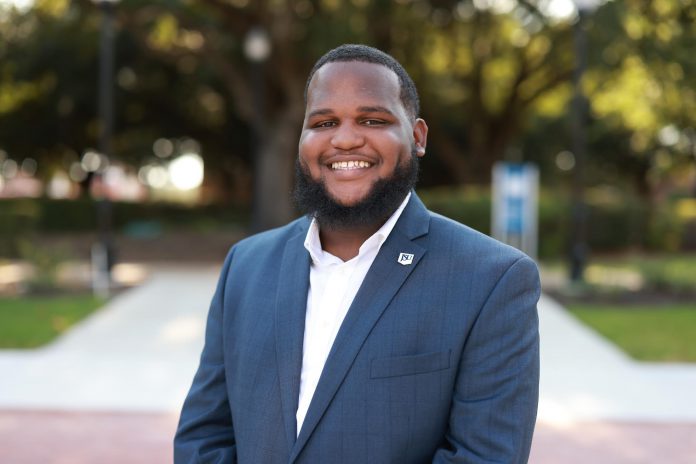
Written by: Zhane McCorvey, Political and Social Justice Activist
In an unprecedented political journey, a former reality TV star and businessman with a history of six corporate bankruptcies ascended to the highest office in the United States. President Donald Trump’s second term, commencing in 2025, has been marked by policies that have ignited intense discussions within the academic community, especially among Historically Black Colleges and Universities (HBCUs) and minority-serving institutions.
In early January, President Trump announced plans to impose substantial tariffs on imports from Canada and Mexico, aiming to protect domestic industries. This move has raised concerns about potential economic repercussions, including increased costs for educational institutions that rely on international goods and services. The administration’s fiscal strategies, such as the “3-3-3” approach—targeting deficit reduction, GDP growth, and enhanced oil production—have introduced volatility into financial markets, prompting universities to reassess their financial planning and investments.
A notable focus of the current administration has been the reevaluation of DEI programs within educational settings. Executive actions aimed at dismantling federal diversity efforts have led to uncertainty and concern among faculty and administrators dedicated to fostering inclusive environments. The rapid issuance of directives has left institutions striving to understand and adapt to the evolving regulatory landscape.
The effects of these federal policies are acutely felt in Mississippi. Milsaps College, for instance, faced internal challenges when a professor was dismissed following an email concerning the presidential election results, highlighting the heightened sensitivities surrounding political discourse on campuses. Mississippi Valley State University’s Mean Green Marching Band also encountered backlash after accepting an invitation to perform at the presidential inauguration, underscoring the complex interplay between institutional decisions and public perception.
The administration’s proposal to abolish the U.S. Department of Education has introduced uncertainty for states like Mississippi, which rely heavily on federal education funding. The absence of clear guidelines regarding the distribution of responsibilities and resources has left educational leaders concerned about potential disruptions to academic programs and student services.
The intertwining of media and politics has become increasingly evident during President Trump’s tenure. Lara Trump, the President’s daughter-in-law, has been granted a show on a major news network, a move that has reignited debates over nepotism and media bias. Critics argue that such appointments blur the lines between journalism and political propaganda, potentially influencing public perception and undermining journalistic integrity. This development raises questions about the role of media in shaping political narratives and the ethical implications of familial ties within influential platforms.
President Trump’s alliances have also drawn scrutiny, particularly his administration’s support for figures like Andrew Tate, who faces serious legal issues, including allegations of human trafficking and rape. High-ranking officials have reportedly exerted pressure on foreign governments to alleviate legal constraints on such individuals, actions that critics contend undermine judicial independence and erode public trust in legal institutions. These associations highlight the administration’s contentious approach to international relations and legal ethics.
The President’s leadership style has been likened to that of a reality TV show, with critics asserting that his approach fosters division and societal unrest. This comparison suggests a governance model that prioritizes sensationalism over substantive policy, contributing to a polarized national climate. The administration’s rhetoric and actions have been accused of exacerbating cultural divides, prompting discussions about the impact of leadership on social cohesion and the responsibilities of public officials in promoting unity.
In January 2025, President Trump established the Department of Government Efficiency (DOGE) through an executive order, appointing Elon Musk to lead the initiative. The department’s mandate is to modernize federal technology and software to maximize governmental efficiency and productivity. Musk’s directive to federal employees requires them to detail their weekly accomplishments or face resignation, reflecting his aggressive management style. This approach was met with mixed reactions; while some view it as a necessary step toward reducing government waste, others express concerns over its potential to disrupt essential services.
The Trump administration’s leadership structure has raised questions about the roles of Vice President JD Vance and Elon Musk. While Vance holds the official position, Musk’s influence within the administration is substantial, leading some to perceive him as a de facto vice president. This duality has sparked discussions about the concentration of power and the potential implications for governance. Critics argue that Musk’s significant role challenges traditional democratic principles.
Observing these developments prompts reflection on the broader implications for educational equity and institutional autonomy. The policies and actions of the current administration serve as a catalyst for critical discussions on how to navigate and respond to challenges that impact the progress and well-being of minority-serving educational institutions. The intersection of political decisions, media influence, and cultural dynamics underscores the complex environment in which educators and students must operate, highlighting the need for resilience and advocacy in the pursuit of inclusive and equitable education.
The views expressed in this commentary are those of the writer(s) and in no way represent the views of The Blue & White Flash or Jackson State University.

